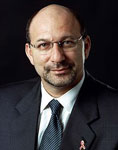
Top stories


Marketing & MediaWarner Bros. was “nice to have” but not at any price, says Netflix
Karabo Ledwaba 19 hours



Logistics & TransportMaersk reroutes sailings around Africa amid Red Sea constraints
Louise Rasmussen 12 hours

More news


















Last week the Cabinet received and endorsed the National Development Plan which the National Planning Commission had drawn up over the past two years. Among other aims, the plan seeks to accelerate economic growth, create 11 million jobs by 2030 and dramatically reduce poverty.
Some political commentators have warned of the possibility of an "Arab Spring" revolution in SA if inequality and poverty are not resolved.
"We must use the planning discipline to shake off the legacy of colonialism," said KwaZulu-Natal cooperative governance and traditional affairs MEC Nomusa Dube at the Planning Africa 2012 conference in Durban. "We must change the begging bowl image that has wrongly been depicted of Africa in the past."
Throughout the continent, Manuel said, spatial development patterns had not progressed far beyond what liberated Africa had inherited from its colonisers. "The shadow of colonialism ... continues to linger on the continent and remains a determinant of relations between Africans through language and transport networks."
Africa was the least urbanised region of the world with low population densities and long distances within and between countries and their trading partners.
Manuel said too many borders fragmented the continent. There were now 54 countries - some with north, south, east and west divisions - all with their own regulations that limited trade on the continent.
"What have we done with our freedom? To take Africa forward, we need a different political perspective."
Manuel said planners needed to recognise rapid urbanisation globally, with half the world's population already living in cities. Factors that would shape growth in future were the rising numbers of youths, urbanisation, global food security and "tectonic economic and political shifts".
The other factors were the rise of emerging economies, the tilt in the geopolitical centre of gravity from west to east and science and technology innovations. Further, the rising tide of citizen action, global society protest and demand for African resources would be important.
To sustain good growth in Africa, Manuel said, its governments should continue promoting good governance and making the most of the potential of youth. Preparing for more urbanisation and investing in industrialisation, infrastructure and human capital were other needed variables.
American Planning Association CEO Paul Farmer said planning was a "conversation" with people in communities, and not a monologue. He said people could not move forward in their development, unless they felt emotionally ready, and chose to do so.
Source: Business Day via I-Net Bridge.

For more than two decades, I-Net Bridge has been one of South Africa’s preferred electronic providers of innovative solutions, data of the highest calibre, reliable platforms and excellent supporting systems. Our products include workstations, web applications and data feeds packaged with in-depth news and powerful analytical tools empowering clients to make meaningful decisions.
We pride ourselves on our wide variety of in-house skills, encompassing multiple platforms and applications. These skills enable us to not only function as a first class facility, but also design, implement and support all our client needs at a level that confirms I-Net Bridge a leader in its field.
Go to: http://www.inet.co.za